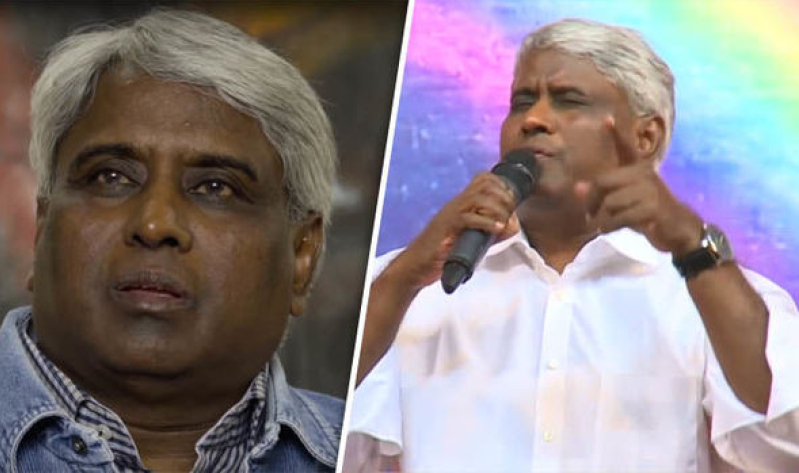
A pastor in southern India has been arrested for allegedly trafficking dozens of young girls through a Christian-run orphanage -- though he claims he was simply saving the girls from inevitable female infanticide.
Pastor Gideon Jacob, 62, the founder of Mose Ministries children's home in Tiruchy, run by Germany-based Christian Initiative for India that was founded by Jacob in 1989, was arrested by the central bureau of investigation (CBI) on Saturday after he arrived from Germany.
According to Reuters, Jacob, who had been on the run for several years, has been charged under trafficking and juvenile justice laws.
For decades, the Mose Ministries home, run by Pastor Jacob and his wife, housed 89 children, all said to have been rescued from female infanticide from Usilampatti in neighbouring Madurai. However, the home had no proper records of the children, all of whom are now aged 18 years and above.
"The girls were admitted without due procedure, believing for 20 years that they had been abandoned or orphaned," notes The Hindu. "Mose Ministries fed, clothed and schooled them, but in a restrictive environment-CCTVs in the dormitory, severe punishments, limited mobility, enforced religious rituals."
In December 2015, Mose Ministries was taken over by authorities during an investigation into the unregistered children's home.
The investigation began after two interns from Chennai-based NGO CHANGEindia visited a few unregistered children's homes in 2015 to gather evidence for a High Court petition on illegal childcare institutions. The interns, Vikas Christy and Babi Christina, reportedly walked into Mose Ministries and spoke to the inmates for three hours.
"It was surprising; they were all around the same age," Christy told the Hindu. "All the girls said they had been rescued from female infanticide."
She added, "They were brought up in an unhygienic, isolated environment, without counsellors, or mentors. The older girls took care of the younger ones; they cooked, cleaned and did domestic chores. No local person, except the Pastor's friends, ever visited. They were forcibly involved in prayer and groomed for evangelist work."
According to Reuters, a number of people have since stepped forward claiming to be the children's parents. In 2016, DNA results showed at least 32 matches, but none of the girls have yet been reunited with their families.
"We have been counselling the girls, who have known no other life since they were babies," said Tiruchy district head Kuppanna Gounder Rajamani. "We have also identified the parents willing to take back their daughters and, following Saturday's arrest, things will move faster and we are hoping to reunite the girls soon."
Speaking to ChristianToday in 2015, Pastor Jacob claimed strongly denied the allegations, which he said were motivated by Hindu nationalists. He argued that the children had all been brought to the orphanage as an alternative to infanticide, thus explaining the lack of records.
"When you bring a baby to give her away you are committing a crime for which you can be imprisoned," he said. "If you give away your child you aren't going to give your telephone number."
He added, "I don't know what lies in the future, but God can do the impossible."
According to Reuters, rights groups have long complained that children's homes in India are "poorly regulated, not inspected often enough, and that many privately-run institutions are able to operate without a license leaving thousands of children open to abuse."
"The arrest gives us hope that there will be justice," said A. Narayanan, the director of advocacy group Change India, who outlined the scope of the problem in a petition filed in Chennai's High Court.
"The real worry is when and how these girls will be rehabilitated. Right now, it seems like a life sentence, where they are resigned to live in an institutional home."






